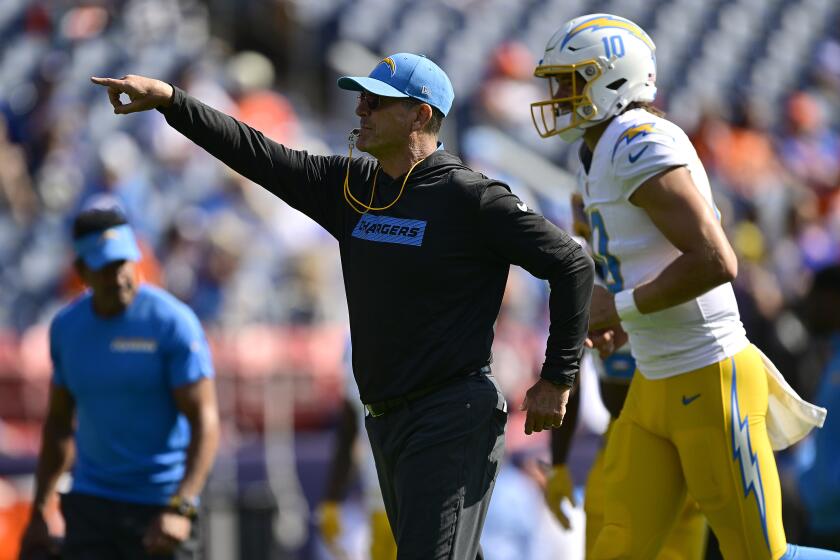Commentary: We boomers thought we’d exit the world in a blaze of glory, but we’ve become ho-hum

Occasionally, I stumble across a painful relic of my squandered youth.
It’s generally there to remind me of something I’d rather forget. Only rarely does it send me into fits of despair or baying at the moon, however. I’ve got my defense mechanisms.
Cultural conventions are healthy restraints. By and large, though, I’m capable of ignoring personal failings that could, if confessed, actually make me a better person.
But that’s me.
As a young man, it was not unusual for me to run 10 miles in the morning without having to spend the remainder of the day in bed; or to memorize a sonnet a couple of hours before its recitation in an English class; or, to eat a bowl of pasta with extra marinara sauce prior to bedtime.
I can’t do any of those things today.
In my eighth decade of life (age 74), I peer ominously into the jaws of destiny, and what do I see?: A chasm; an abyss; eternity. Alas, my showy pretenses of youth are gone. The skills displayed by myself — and “les enfants terribles” of my 1960s generation — have long-since evaporated.
In retrospect, our over-indulgence was appalling.
Unbeknownst to us at the time: we would be spent embers by the third decade of the 21st century. We boomers thought we’d exit the world in a blaze of significance. Hah! Instead, we’re boring and ho-hum, and given to packing adult nappies for road trips.
As we advance in age we’re exposed to some not-always-obvious truths. Like the one about “becoming wise.” We don’t automatically inherit that with age.
Wisdom exists, I’m convinced, where there has been pain. If we’re generous of spirit, we share what we’ve learned and offer counsel. Culture warns us against living the unexamined life, but significance cannot be accrued without suffering.
Poets have long inspired generations with phrases about death and its close ally, aging.
“Grow old along with me!” invites 52-year-old (at the time) Robert Browning. What does he know of aging? “The best is yet to be, the last of life for which the first was made.”
Not long ago my wife, Hedy, and I and our three daughters and eight grandchildren sat together in our living room, chilling.
“OK, here’s an interesting question,” I offered.
Our life-group at church, I explained, discussed what age we’d prefer to be for eternity in heaven — assuming, of course, we get there.
“I think I’d choose 32,” daughter Jenn said thoughtfully. “You’ve got a little maturity, yet you’re still at the top of your game physically and mentally.”
But in heaven, presumably, all that stuff would have been suitably worked out prior to our arrival. No wrangling.
“How about if I look 25 but possess the wisdom of a 55-year-old,” youngest daughter, Melissa, compromised.
Does it really matter how one looks when one lives in the best neighborhood in the cosmos?
That which keeps us living, I’ve learned, is actually … death.
Essayist Joseph Epstein wrote: “We are all born with a serious and unalterable defect. We grow old – at least the lucky among us do – and then we die.”
For what purpose? That’s the question each of us must ponder.
“The awareness of death is the first key to the discipline that contributes to the good life,” said one-time dean of Harvard Chapel, Peter Gomes.
A number of years ago, while Hedy and I were on vacation in a tiny burg near the California-Oregon border, we heard a sermon that addressed similarities between a meaningful life and NBA basketball.
Why is the NBA so popular? Relevance? Great players?
The game is what it is because of one simple factor … a clock. Players have a limited amount of time in which to “get it done.”
We’re told in the Scriptures that we humans are but a morning mist.
Spontaneity may be the NBA’s credo, but spontaneity has nothing to do with reality. The clock rules. The objective of the game — to score more points than the players in the other uniforms — is impossible without a clock.
Absent a countdown, the game collapses into hard-driving floaters, half-court swishers and baseline flushes. Froth without purpose.
Minus an imposed external restraint, interest in “the game” would wither and die. No box scores; no resolution; no significance.
A clock brings with it meaning. So does death.
Support our coverage by becoming a digital subscriber.
Former Daily Pilot columnist Jim Carnett lives in Costa Mesa.
How to get published: Email us at [email protected]. All correspondence must include full name, hometown and phone number (for verification purposes). The Pilot reserves the right to edit all submissions for clarity and length.
All the latest on Orange County from Orange County.
Get our free TimesOC newsletter.
You may occasionally receive promotional content from the Daily Pilot.



